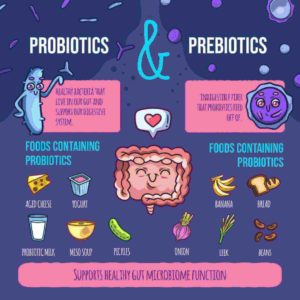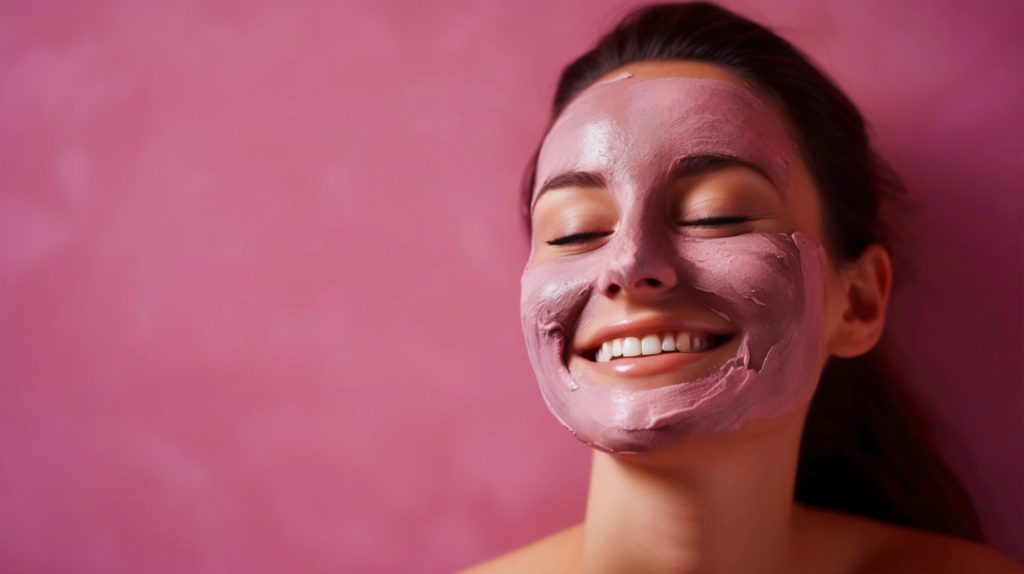Bacteria in your body are estimated to outnumber cells by a 10-to-1 ratio. According to a recent study, the ratio is more or less one-to-one. These estimations place your bacterial population at 39-300 trillion. Whichever estimate is most accurate, it’s a big figure.
When probiotics, a form of friendly bacteria, are consumed, they provide health advantages. They’re frequently taken as supplements to help colonize your stomach with beneficial microbes. Let’s uncover the benefits and what probiotics you can take.
What are Probiotics?
Probiotics are often bacteria, however, certain yeasts can also serve as probiotics. Other microorganisms in the gut that are being researched include viruses, fungi, archaea, and helminths.
Probiotics can be obtained through supplements as well as foods created by bacterial fermentation. Yogurt, tempeh, sauerkraut, kefir, and kimchi are all probiotic foods. Prebiotics, which are carbs, generally dietary fibers that help feed the friendly bacteria present in your stomach, should not be mistaken for probiotics.
Synbiotic supplements typically blend friendly bacteria with food for the bacteria to consume the prebiotics. Lactobacillus and Bifidobacteria are the most frequent probiotic bacteria. Probiotics have been discovered to help with a variety of health issues. As a result, selecting the correct type of probiotics is critical.
Some supplements, referred to as wide-ranging probiotics or multi-probiotics, mix multiple species in a single product. Although the data is intriguing, more research on the health advantages of probiotics is required. Some researchers warn about the potential detrimental effects of probiotics and advocate increased prudence and stringent regulation.
How do Probiotics Work on your Skin and Overall Health?
1. Digestive Health

Probiotics can help with gut health by lowering antibiotic-associated diarrhea and fighting irritable bowel syndrome (IBS). However, data on their efficacy in treating IBS is conflicting, with seven studies showing relief and four not. Probiotic pills with many strains are the most effective, particularly if taken for more than 8 weeks.
2. Weight Loss
Obesity is connected to altered gut bacteria in lean persons, according to research, and microbial disturbances in the gut may lead to adult obesity. Some probiotic strains, such as the strains of Lactobacillus gasseri and Bifidobacterium lactis, have been proven to help with weight loss and obesity prevention, while more research is needed.
3. Depression and Anxiety
Lactobacillus helveticus and Bifidobacterium longum, among other probiotic strains, have been proven to improve anxiety and depression symptoms in persons with clinical depression.
4. Blood Cholesterol

Several probiotics have been proven to reduce total and LDL also known as bad cholesterol levels, while the study is still debated.
5. Immune Health
Some probiotic strains may boost immune function and potentially lower the risk of illnesses like the common cold.
6. Aging
Though research is limited, there is evidence that probiotics have the potential to increase lifespan by improving cells’ ability to multiply themselves.
Skin and Probiotics
Probiotics, both in pill and topical form, may help prevent and treat skin disorders such as eczema, dryness of the skin, acne, and UV-induced skin damage, according to a growing body of data. Certain probiotics have been demonstrated to increase skin ceramide production or lipids that trap hydration in the skin while keeping acne-causing bacteria at bay.
According to research, some probiotics feed good bacteria to balance the pH of the skin and protect it from free radical damage. Some bacteria may aid in the prevention of skin cancer and may alter the growth patterns of skin to give it a healthier appearance.
Conclusion
Do you believe that eating yogurt daily keeps stomach troubles at bay? You’ll be glad to know that the same microbe-friendly attitude is changing the world of skin care.
Several privately owned skin care lines focusing solely on nourishing the skin microbiota have emerged in recent years. Even well-known brands such as Dior and Lancôme have launched microbiome skincare lines.
Probiotics in Skincare FAQ’s-
What benefits can I expect from using Probiotics on my skin?
Using probiotics on your skin can help strengthen the skin barrier, reduce inflammation, and enhance moisture retention. Leading to a more radiant glow and improved overall skin health.
Are Probiotics suitable for all skin types?
Yes, probiotics are generally suitable for all skin types, including sensitive skin. They work to maintain a balanced microbiome, which is crucial for skin health, regardless of whether your skin is oily, dry, or prone to sensitivity.
How can I incorporate Probiotics into my skincare routine?
You can incorporate probiotics into your skincare routine by using products containing prebiotic-rich ingredients, such as chicory root, inulin, or various plant extracts. Look for cleansers, serums, and moisturizers that promote a healthy skin microbiome.
Can Probiotics help with specific skin conditions, such as acne or eczema?
Yes, Probiotics may help with certain skin conditions. By fostering a balanced microbiome, prebiotics can reduce inflammation and support the skin's natural healing processes. However, it's advisable to consult with a dermatologist for personalized advice on managing specific skin conditions.


Pingback: Best Diet Foods for Glowing Clear Skin - Wild Oak Skincare